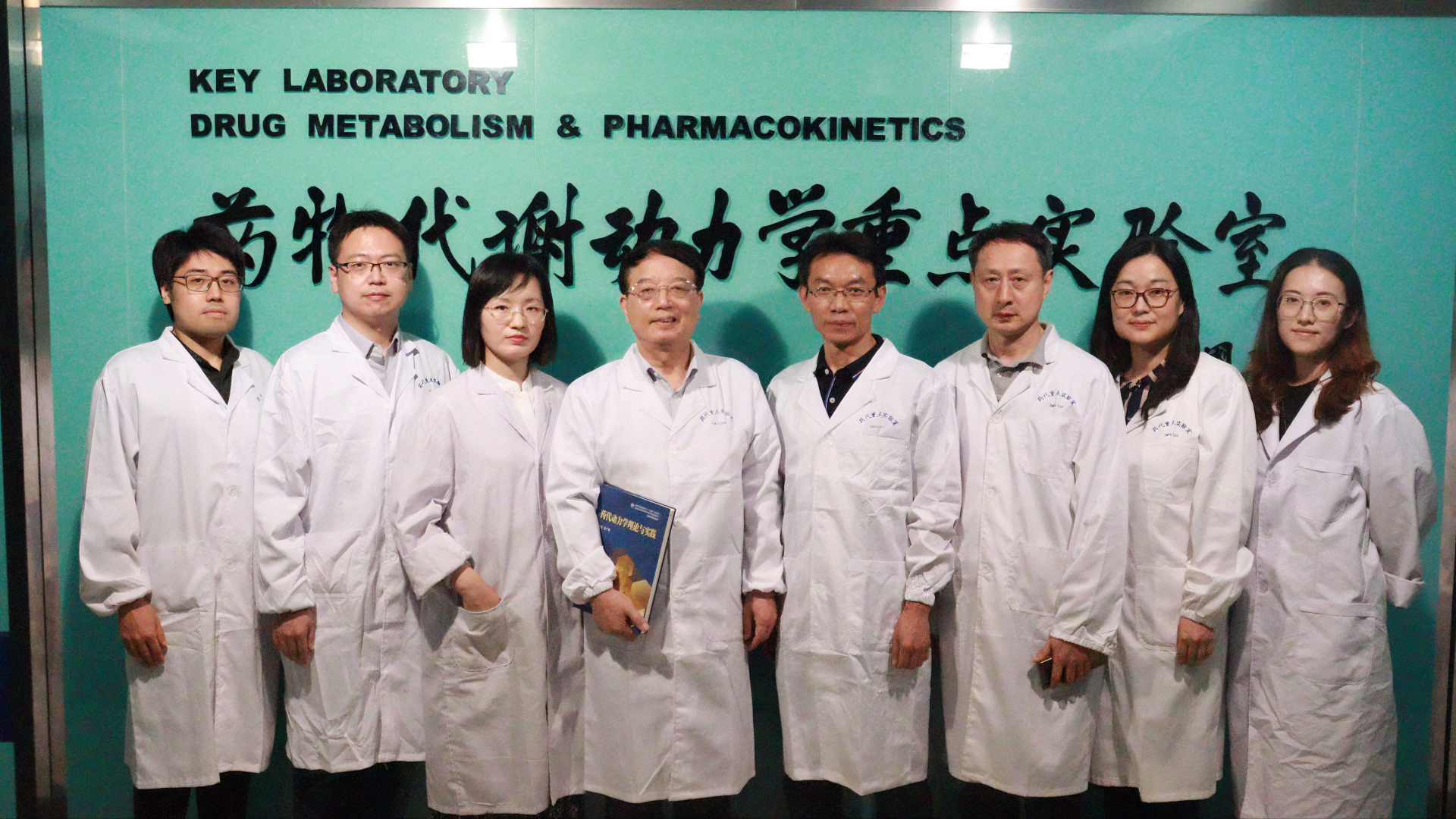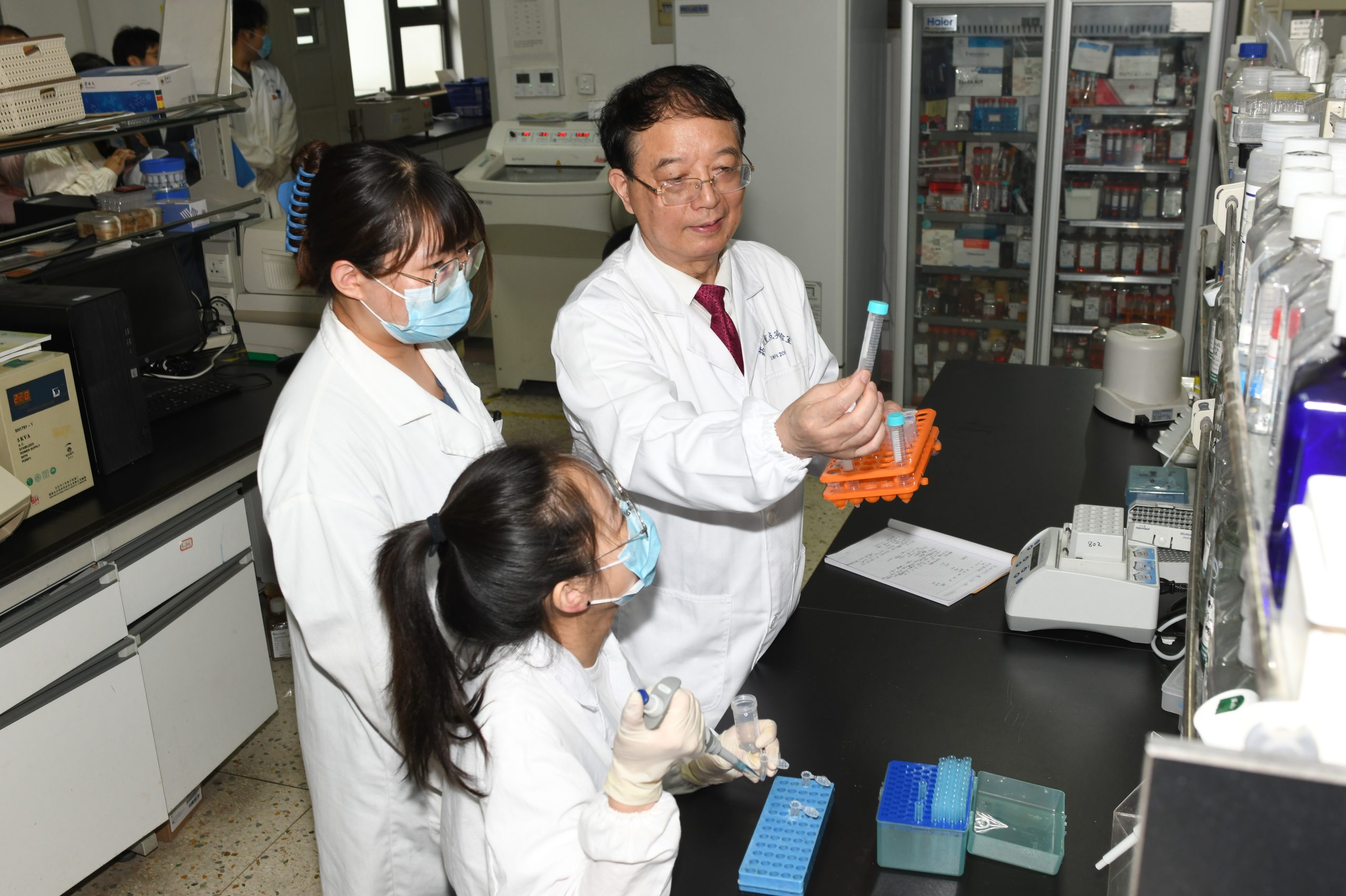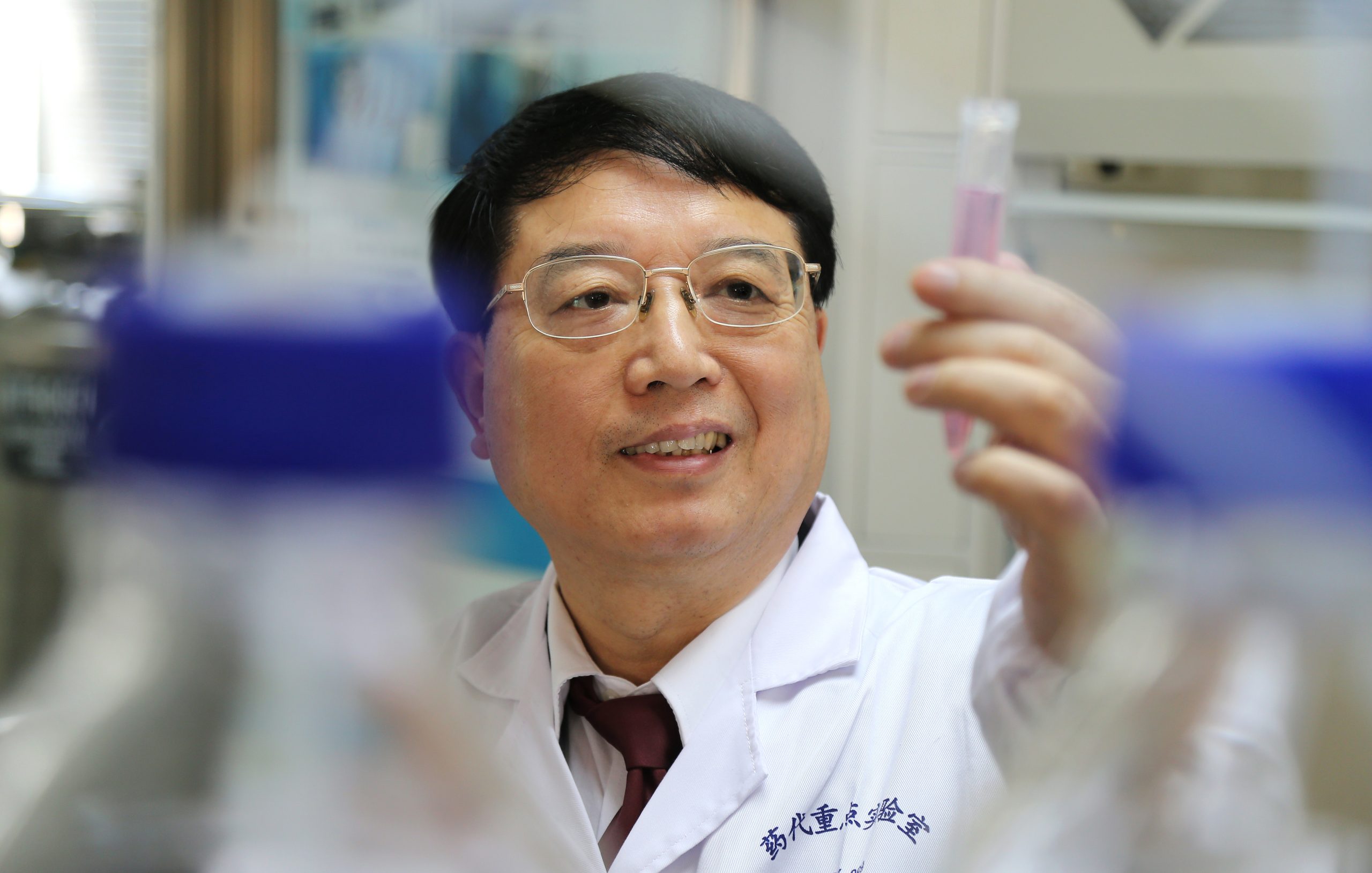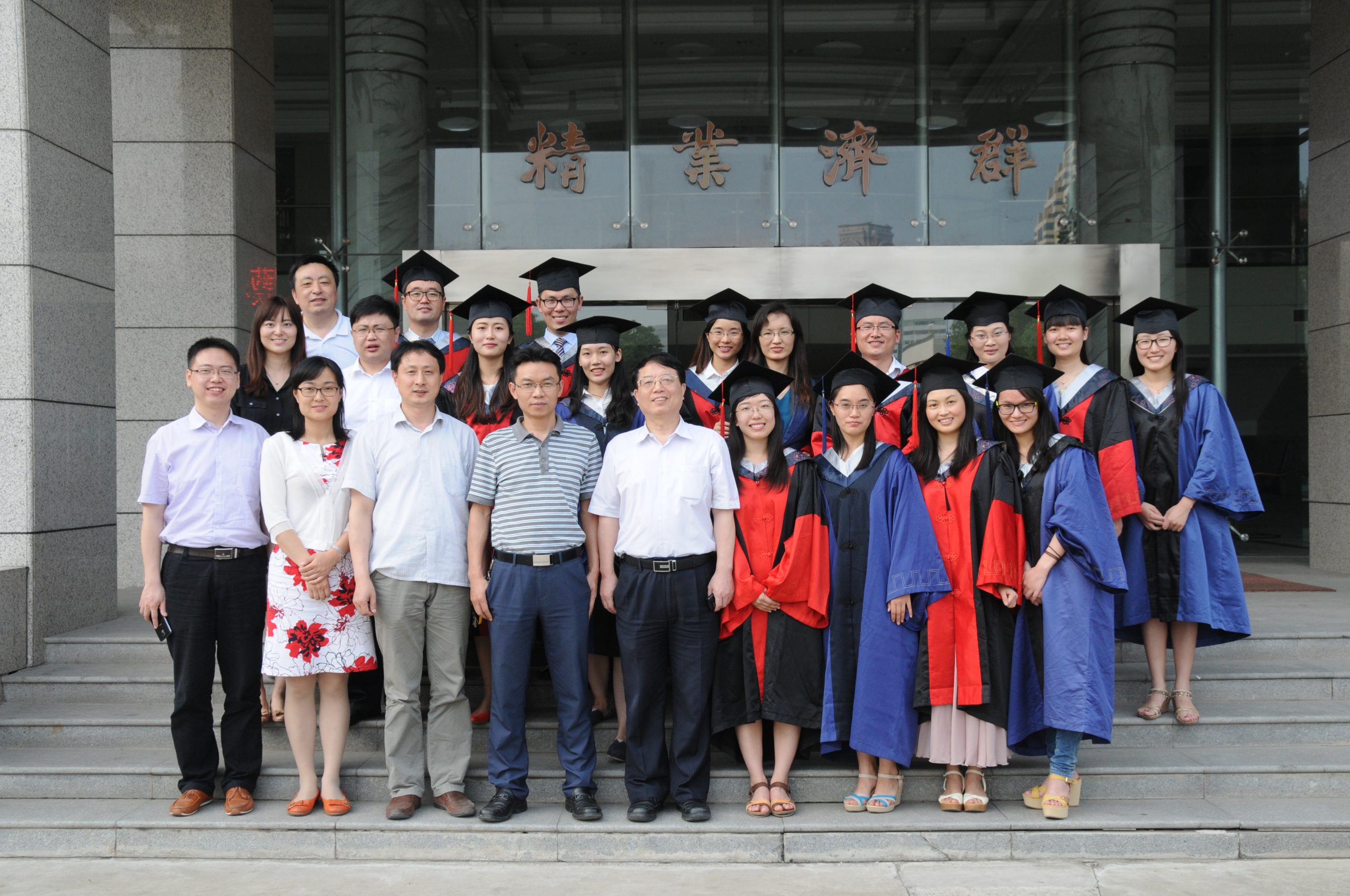Innovation first prize | Research team of pharmacokinetics and conversion of finished drugs for precise treatment in China Pharmaceutical University: Jingye Jiqun, a dose of "China medicine"
Today is the seventh "5.30 Science and Technology Workers’ Day", and the China Association for Science and Technology officially announced the list of the third national innovation first prize. The research team of pharmacokinetics and drug conversion of China Pharmaceutical University, led by China Academy of Engineering and Professor Wang Guangji of China Pharmaceutical University, won the medal of "National Innovation First Prize".
In mid-May, the reporter visited Academician Wang Guangji and his team in Jiangsu Key Laboratory of Pharmacokinetics of China Pharmaceutical University. The first impression that Academician Wang Guangji gave reporters was that he spoke slowly, humbly and kindly. In the interview, the reporter found that Academician Wang Guangji still used a non-smart phone that could only make calls and send text messages more than a decade ago. "I hope to study science better and not be disturbed too much by the outside world." Academician Wang Guangji said.
Over the years, Academician Wang Guangji’s team has focused on the frontier of biomedicine, breaking through the "stuck neck" problems in the biomedical field, such as the discovery of many new drug targets, the research and development and transformation of innovative biopharmaceuticals for precision treatment, cell drugs and high-end preparations.
On the wall of the team lab, there is a saying that success comes from strict self-management and perseverance.

Research team of pharmacokinetics and drug conversion for precision treatment in China Pharmaceutical University
Devote oneself to pharmacokinetics
Strive to break the "black box effect" of traditional Chinese medicine
What is pharmacokinetics? Wang Guangji replied that pharmacokinetics mainly studies the absorption, distribution, metabolism and excretion of drugs by the human body. In the past, people took a certain medicine, but they probably didn’t know how the medicine affected the body and made us get better or recover, which was similar to a "black box". Pharmacokinetics can make this "black box" transparent and change the efficacy of drugs from qualitative to quantitative. After taking a pill, you can observe when and what concentration the drug is in the human body, when it has the greatest efficacy, and when the drug has no effect and needs to be supplemented. Therefore, it is essential to establish a high-level preclinical pharmacokinetic technology platform for the creation and research of new drugs.
Wang Guangji became attached to pharmacokinetics more than 40 years ago. In the 1980s, the pharmacokinetics of drugs in China just started, and its research involved complex mathematical problems, which fascinated the young Wang Guangji and prompted him to choose this research field and go abroad for further study.
In 1995, Xia Lin, then Vice President of China Pharmaceutical University, invited Wang Guangji to work in China. He declined the invitation of foreign tutors and decided to return to China to devote himself to the discipline construction and scientific research of pharmacokinetics in the motherland. In Wang Guangji’s mind, there has always been a firm belief that scientists are persistent in science, but more persistent in the feelings of home and country. No matter how high your personal achievements are, you can’t compare with the joy of seeing the vigorous development of pharmacy in your motherland.
Today, after years of hard work, Academician Wang Guangji’s team has overcome a number of "stuck neck" technologies, and the internationally advanced preclinical pharmacokinetic technology platform established by the team has become an important support system for innovative drug research and development in China; Take the lead in expanding the pharmacokinetics of traditional Chinese medicine from single component to multi-component research; From macroscopic plasma to microscopic cells, the detection problem of drug concentration in cells is solved technically, and a new mathematical model is established to help clinical precise treatment. "Through the cross-integration of disciplines, we can see the process of drug metabolism in cells and how to enter the nucleus through the cell wall and how to distribute it after entering the cell. In this way, it can better guide clinical combined medication and precise treatment. " Wang Guangji explained.
It is precisely because the drug metabolism has become considerable and sensible that Wang Guangji’s team has also solved the problem that traditional Chinese medicine has formed a "black box" in the human body for many years. "In view of the difficulties in the detection of complex components of traditional Chinese medicine, the identification of metabolic pathways and the analysis of material basis, we have established an international advanced longitudinal research system on pharmacokinetics of traditional Chinese medicine, which not only reveals the role of multi-target and overall regulation of traditional Chinese medicine, but also explains the major scientific problems of treating both the symptoms and root causes of traditional Chinese medicine and promotes the modernization of traditional Chinese medicine." Wang Guangji said.
Juli original technology research
Help China’s biomedicine to "lead"
Innovation is the core competitiveness of biomedical industry. In recent years, drug research and development is developing from small molecule drugs, targeted drugs and antibody drugs to cell drugs. China’s biomedical industry is striding from "running with" to "running with" and then to "leading".
"Finding brand-new targets and developing class 1 innovative drugs" is the key to "leading the way" and the most difficult "hard bone" in pharmaceutical field. "Doing basic research is the key. Only when we lay a good foundation and walk ahead can we find more targets and produce more’ China drugs’. " Wang Guangji told reporters.
Scientific research comes from clinical needs, and also to better solve the problems of clinical needs. In 2019, Sun Lingyun’s team of Nanjing Gulou Hospital won the second prize of national technological invention for "Research on key technological innovation and clinical application of allogeneic mesenchymal stem cells in the treatment of refractory lupus erythematosus". In order to benefit more patients, Professor Sun Lingyun, then vice president of Gulou Hospital, sought the collaboration of Academician Wang Guangji, hoping to turn this medical technology into stem cell medicine, making the treatment safer, more effective and more controllable in quality. After three years’ efforts, this stem cell product independently developed by China for the treatment of lupus nephritis has entered the II clinical stage.

Academician Wang Guangji is doing experiments with students.
"In the past, drugs were constantly metabolized after being injected into the body and could not be regenerated, but when living cells were injected into the body as drugs, they could proliferate in the human body and then go where they needed to go. Therefore, cell drugs will have unique effects in treating immune imbalance and tissue repair. " Wang Guangji told reporters, "If chemical drugs and traditional Chinese medicine are the first generation drugs and vaccine biotechnology drugs are the second generation drugs, then cell drugs belong to the third generation drugs." Wang Guangji explained, "This is a revolution in clinical medicine with broad prospects. For the biomedical industry, this is a brand new track, which is worthy of our innovation. "
From a medical technology to the research and development of stem cell products, based on a mature technical system. A few years ago, Wang Guangji’s team developed a research technology system on pharmacokinetics and drug-forming properties of living cell drugs to meet the great demand of rapid development and drug-forming transformation of cell drugs such as CAR-T and stem cells, which can reveal the relationship between the fate and efficacy of living cell drugs in vivo and help to formulate clinical precise treatment plans.
Inherit the essence, keep the integrity and innovate. Traditional Chinese medicine is a treasure of our country. How to make traditional Chinese medicine better modernized is a subject before many pharmaceutical experts. "Traditional Chinese medicine is difficult to be recognized by the international medical academic community because of the problems of clear efficacy and unclear material basis, which seriously restricts the modernization of traditional Chinese medicine and its entry into the international medical market." Wang Guangji said.
In view of the low oral utilization rate of most traditional Chinese medicines and the accumulation of a large number of traditional Chinese medicine components in the intestine, Wang Guangji’s team put forward the theory of "symbiotic metabolism of traditional Chinese medicine-flora-host", revealing that traditional Chinese medicine components can play a remote regulatory role through "heart axis" and "brain-intestine axis". "Based on this research model, we found inspiration from a medicinal material in Compendium of Materia Medica, extracted new compounds, and discovered a new drug ZH01 which can quickly relieve depression. At present, we have applied for a patent." Wang Guangji introduced.

Academician Wang Guangji
Both wisdom and ingenuity
The essence of scientific research lies in the treatment of diseases by drugs.
The medical way is helpful to the world, and the fine industry is rich. In Wang Guangji’s view, pharmacists should not only have the kindness of doctors, but also have wisdom, ingenuity and harmony-
Wisdom, emphasizing the ability to put forward innovative ideas and methods, as well as unique scientific insights, will eventually bring new understanding and breakthroughs to China’s pharmaceutical industry, and do useful scientific research that can solve clinical problems and land; Ingenuity requires Excellence in experimental design, data analysis and interpretation of results, pursuing excellent scientific research quality and pushing scientific research to a higher level. Wisdom and ingenuity complement each other and together constitute the core quality of outstanding scientific researchers. Harmony, that is, cooperation, should maintain a humble attitude, actively communicate and cooperate with others, and draw inspiration and inspiration from different angles and ways of thinking. The most important thing is to persist in loving science, keep the passion and pursuit of scientific research, drive yourself forward in the field of scientific research with wisdom and ingenuity, and make contributions to scientific progress and social development.
In the team of Academician Wang Guangji, there are leading talents such as academicians, Changjiang scholars and national Jie Qing, and more and more "post-90 s" and "post-00 s" have joined. In the eyes of students, Wang Guangji is a strict teacher and a kind teacher.
"The team pays attention to bringing the old with the new, which can not only help young people establish a good research direction in the early stage of their scientific research career, but also set an example for them in scientific research. We not only pay attention to the communication and cooperation within the team, but also encourage and support interdisciplinary scientific research cooperation and exchanges with other teams to provide more learning platforms and development opportunities for young people. " Wang Guangji said that scientific research must not be done behind closed doors. Don’t just work hard, you must learn to look up and ask for directions. Pharmacy itself is an interdisciplinary science that combines medicine, chemistry and biology, and teamwork has become the key to promote interdisciplinary research.

Research team of pharmacokinetics and drug conversion for precision treatment in China Pharmaceutical University
Pharmacy is a long-time-consuming, high-input and high-risk industry because it has its particularity because it undertakes the "weight of life". The research and development of a new drug often takes about 15 years and costs 2 billion dollars, and less than 10% of the products that finally enter the clinic can be approved for marketing. This means that pharmaceutical research must endure loneliness and setbacks and always pursue Excellence.
"I often tell my classmates that to learn, we must constantly improve our insight and concentration on problems. This requires extensive literature reading and lifelong learning mode, and at the same time pays attention to the cultivation of practice and experimental skills. Don’t be afraid of failure, find the right goal and keep going, even if the experiment fails 100 times, it is enough for the ultimate success! As long as you are willing to study hard and be willing to work hard, you will always solve the problem and have a bright future. "
This year, Academician Wang Guangji is just 70 years old. From 1977 to now, he devoted himself to the study of pharmacokinetics. At that time, the young scallion had arrived in seventy years of age, and his hair had turned white. But he didn’t change his mind.
At the end of the interview, Wang Guangji told the reporter about an experience when he was studying: "Pharmacokinetics often takes a long time to collect blood samples continuously, and the experiment is very tiring. When I was young at the University of Queensland in Australia, I stayed in the laboratory for 48 hours. When the school security guard saw a light in the window to check, he was surprised and asked, why are you still here? "
The simple words of security guard are still imprinted on Academician Wang Guangji’s mind. Why are you still here? "It is also the motto of our team-success comes from strict self-management and perseverance." Academician Wang Guangji said. Up to now, his daily working hours are still from 8: 00 am to 12: 00 pm, which is not inferior to the young people in the team. "Scientific research should be carried out and the results should be for the people. Only by truly solving problems at the new drug development terminal and getting safe and effective results in clinical patients is the ultimate meaning of scientific research. "
Xinhua Daily Meeting Point reporter Ye Zhen
Correspondent Jiang Chentu/Cui Jiayue